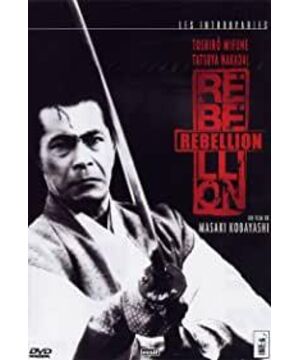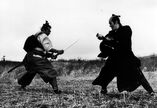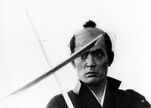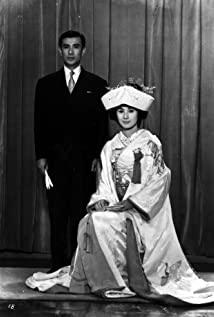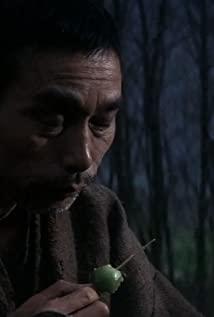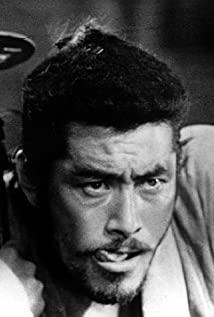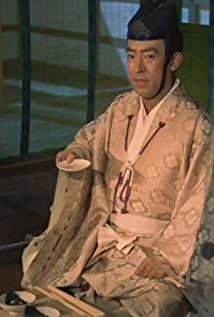The plot of the movie "The First and the Last of the Wife's Wife (or "The Sword of Death")" tells the story of the family of Isaburo Sasahara (played by Toshiro Mifune), a samurai who returned to the Aizu Domain during the Tokugawa shogunate era, around 1727 AD. . This story has a clear date and place of occurrence, and the characters are named by their names, so I don't know if they are real people or not. As usual, the plot of the movie is detailed below (very detailed!), and it is up to the reader to read it to the end.
The film first explains Isaburo Sasahara's superb swordsmanship and his deep friendship with Asano Yuto (played by Nakadai Tatsuya), the guardian of the domain. Isaburo Sasahara has been married to his wife's family for more than 20 years. Although his wife is strong and powerful, he has lived his life honestly. He has two sons: Yugoro (played by Kato) and Wenzo (played by Jiangyuan Dayi).
One day, something big happened. The servant of the domain, Geki Takahashi (played by Shigeru Kamiyama) came to Sasahara's house and said that the lord Matsudaira (played by Tatsuo Matsura) asked Isaburo's eldest son and Goro to marry his concubine いち (played by Shi Ye), I heard that it was because いち" Attacking the feudal lord was very disrespectful, so the feudal lord drove Isa out of the city and ordered her to marry the Sasahara family. Although the Sasahara family felt inexplicable about the arrangement of the feudal lord, they had no choice but to accept it. Yugoro and いち are very happy after their marriage. In addition to her mother-in-law's thoughts, Isaburo is very satisfied with this daughter-in-law. He is also old, so he applied for retirement as soon as his son got married, and handed over the public position and family business to the eldest son. . Isaburo and his son were puzzled, why would such a wise and gentle daughter-in-law "attack" the feudal lord? Totally invisible. After a while after the marriage, いち revealed why she was kicked out by the feudal lord.
いち is also the daughter of the samurai family, and was asked to be his concubine by the feudal lord. いち has no love at all for the old man in his 50s who took her by force, and all his thoughts are lost, thinking that since he entered the city, he must give birth to many, many children. Soon a son was born, and the feudal lord was overjoyed, because the feudal lord currently has only one son, and one more son can ensure the continuation of the feudal regime. However, after giving birth, I went to the hot spring area for confinement and came back, and found that the feudal lord had accepted a new favorite. She was furious when she saw the girl! Not because she was jealous of the girl, not because she stole the feudal lord's heart, but because she saw the girl's face full of pride and joy, she was not ashamed to be with the feudal lord at all, and thought she was a peacock. To show off, she couldn't stand this kind of self-deprecating mentality, so she beat the girl hard, and then chased after the lord of the feudal lord, pulling and pulling, and slapped the lord of the feudal lord several times, calling him a "beast"! So of course he was kicked out of the palace. Isaburo and Yogoro were greatly moved after hearing this. Isaburo told his son that your wife is a good woman, so you must treat her well. (いち Marrying into the Sasahara family is equivalent to being forced to separate from her own son, which is the most painful thing for a mother.)
Not long after, いち gave birth to a daughter for Yugoro, named Duomi. There is a wedding here, but the feudal lord's family is going to have a funeral. The eldest son of the future heir, the lord of the feudal lord, died of a sudden illness. As a result, the son who was born in the side room was the natural heir to the feudal throne. However, this would cause a problem. If the mother of the future feudal lord was the wife of a middle- and low-level samurai under the feudal lord, it would be too indecent, so the feudal lord ordered the Sasahara family to send Ika back to the city. This incident caused a strong backlash from Isaburo, Yugoro and his wife. At first, the clan forced the Sasahara family to accept いち. Now that they even gave birth to a daughter, they even wanted to take them back, and they had to separate the husband and wife, mother and daughter. There is no reason in this world. But both mother-in-law and uncle Wenzang thought she was just a woman. How could she disobey the lord's orders and cause the whole family to suffer?
After the trouble, the senior officials of the domain and the relatives of the Sasahara family came to question them, and Goro and his wife resolutely refused. But the pressure is too great, in order to prevent the destruction of the family, even Yugoro wants to persuade いち to submit. But at this time, Isaburo became tougher. He said that he had been obedient throughout his life and was a mess, but only after experiencing this conflict did he clearly know why he was alive. Father and son join forces to fight "Shangyi"!
Uncle Bunzo pretended that the old man in the domain wanted to ask Yugoro and his wife's intentions, and deceived いち to go back to the city. Although Isaburo and his son were angry, they had to accept it silently for a while, thinking about countermeasures. However, this act of kidnapping was also not decent. In order to take into account the feelings of the Edo shogun and the feudal clans towards the Aizu clan, the clan lord hoped that the Sasahara family would take the initiative to make a written request for the return of いち to the castle. After Yugoro learned the information brought by the manager, he felt that it was unreasonable and deceiving! But Isaburo said that it is useless to talk about the matter so far, so why not formally apply for the return according to the words of the general manager?
The elders of the clan, the chief administrator, and the imperial servants were very happy that the matter could be ended successfully when they heard that Yugoro was going to submit the application for return in person. However, when he opened the application letter that Yugoro personally sent, he fainted with anger. It turned out to be a formal written application for the lord to return his wife! The feudal lord was even more angry, and sent someone to give Isaburo and Yogoro and their son to cut their belly. Isaburo said that it is a great favor for me to end my own life, I accept it, but before I die, I have to get the heads of the feudal lords, the elders of the family, and the imperial servants who stole my daughter-in-law and other culprits.
As such, there is no room for negotiation. The feudal lord called Asano with a sword, because his swordsmanship was not under Isaburo's, and he hoped that he would take action against Isaburo. Asano said that he was only a border guard, not a sheriff to catch criminals, nor a killer. This was not his responsibility, and if he insisted on using force to deal with Isaburo, he would definitely get piles of corpses. The imperial servant asked Ying to personally deal with Isaburo and his son. He took Ika home and forced the three of them to make a decision. いち's decision can decide the life and death of Isaburo and his son. In the end, いち still insisted on her identity as the daughter-in-law of the Sasahara family, and grabbed a spear and stabbed herself to death, thus triggering a bloody fight! He died with Goro holding his wife, and Isaburo, who was furious, killed all the imperial servants and samurai present!
After burying the couple with Goro, Isaburo went to Edo with his granddaughter Tami to complain to General Tokugawa. The domain also sent a musket team to hunt down Isaburo. Came to the border to meet old friend Asano. Asano said that it is his duty to guard the border, and he cannot let old friends go there privately. Isaburo can understand, so after feeding Tami with the help of Asano, the two draw swords to confront each other. The master made a move, and at the moment of life and death, Asano fell to the ground. Before dying, he said with a wry smile: "You have three people, Yugoro, Iち, and Tami to help you. I have no chance of winning at all."
To win a strong enemy, Isaburo was going to hold Tomi, but unfortunately was plotted by the feudal musket team. Isaburo blocked the bullet with his body, let out a roar like a lion before dying, rushed forward and wiped out all the musket team, and Isaburo finally Died in anger. Duomei was hugged by the rushing nanny and fled to the mountain road and went away without knowing where she was going.
************************
Supervising Kobayashi Masaki's technique is smooth, the story is told very well, and the rhythm is also properly grasped. The composition of the picture is not as strong as Okamoto Kihachi, but the geometric composition is also quite elegant and stable. The action scenes are not as intense as Kenji Misumi, but they burst out with savings, and their appeal is also very strong. But to be honest, the scene of Toshiro Mifune and Tatsuya Nakadai's final battle was not very well shot. Compared with the classic battle scene in Kurosawa Akira's "Tsubaki Juro (Great Swordsman)" in 1962, which was also performed by the two of them, it was even better. is far better. On the contrary, before the sword fight, Isaburo helped Xiaotomi organize things, and Asano brought a knife to the side to help hold Xiaotomi in the scene. The family and friendship were brought to the highest point, which was very touching.
Hashimoto Shinobu's script also wrote a reasoning drama, that is why いち attacked the lord? I didn't reveal the mystery right away, I just said it slowly. The plot deduction along the way is also full of suspense. The big and small events happen one after another, and the audience will always worry about what happened to the Isaburo family. However, I doubt that it is really necessary to arrange the role of Asano Odaito/Nakadai Tatsuya? This role does not play much role in the play. The biggest use is to use it for a traditional two-hero duel with Isaburo/Toshiro Mifune, probably just to serve fans who like sword movies.
Toshiro Mifune's performance has a lot of room to play, and there are emotions such as joy, sorrow, pain, confusion, crying, and breathlessness. The role of Mifune has always been rarely killed in movies, but this time, it was tragic and helpless. Tatsuya Nakadai's role doesn't have a lot of space to play, and his performance is not outstanding, and he always has a straight face. However, this Asano with a sword is worthy of being a generation of samurai. He is well-shaped and guarded, and he has an account of both public and private. He does not lose his heroic demeanor, but after all, he is also an indirect victim of this Sasahara family tragedy.
This play is similar to Imai's "Bushido Cruel Story", both of which are accusations of the unreasonableness and dehumanization of the feudal system. Although samurai is a class of beauty, full of majesty, but samurai is not an easy job, it is a bitter profession. Facing the unreasonable demands of superiors and feudal lords, there is usually only obedience, which is called "loyalty". At the same time, it is also due to the design of the unreasonable and inhuman feudal system, which makes people shackled, unable to resist, and obliterates humanity. Destruction and death are inevitable even in the face of resistance. At most, it's just a fight to the death. The film reflects the national character. From this film, we can see the contrast between the Japanese people's divisions and views on the ego and the ego, the family and the individual, duty and justice, obedience and resistance, and so on.
This film is produced by Dongbao. Recently, Taiwan New Generation Company has released a series of Dongbao films. There has also been a "strange talk" by Kobayashi Masaki before. I wonder if the director of New Generation Company has noticed this good film? The film's performance and good looks are definitely not inferior to the recent release of Inagaki Hiroshi's period martial arts dramas.
View more about Samurai Rebellion reviews


